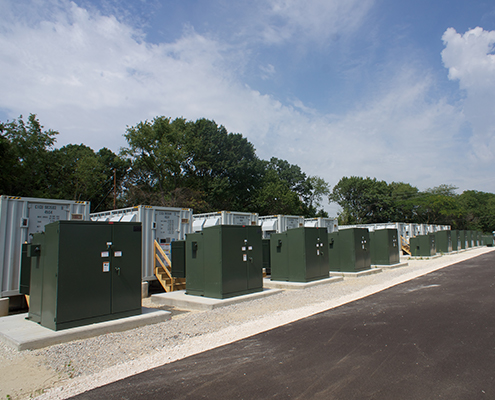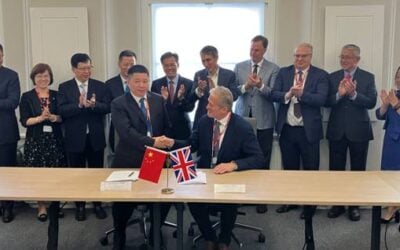
US developer GlidePath Power Solutions has signed up to use a full life-cycle management platform for the batteries it uses, including recycling and repurposing as it seeks to “resolve the recycling and re-use case upfront, not down the track”.
The renewable energy and energy storage project developer has partnered with Renewance Inc, a provider of software solutions, consultancy and project management services to the industrial battery sector, aimed at managing liabilities for batteries at the end of their life as well as during their initial lifecycle.
Enjoy 12 months of exclusive analysis
- Regular insight and analysis of the industry’s biggest developments
- In-depth interviews with the industry’s leading figures
- Annual digital subscription to the PV Tech Power journal
- Discounts on Solar Media’s portfolio of events, in-person and virtual
This includes the provision of recycling services to the energy storage industry, and GlidePath will use Renewance Connect, a digital platform aimed at helping asset owners to manage their batteries, including compliance with regulations and warranties.
Renewance said it has already recycled lithium battery storage systems used at large-scale energy storage projects for other customers including two 18MWh lithium iron phosphate (LFP) systems operating in the US’ mid-western PJM Interconnection market.
“Our portfolio of energy storage projects has been growing for some time now and, in order to sustain this upward trajectory, we are thinking ahead about the full life cycle of batteries,” GlidePath CEO Chris McKissack said.
“Teaming with Renewance is an important step toward making battery recycling and re-use standard practice in energy storage.”
As well as helping with the end-of-life management of batteries, GlidePath also said that using the platform will help the developer reduce operating costs and complexity.
Questions need to be answered sooner rather than later
While most larger lithium-ion battery storage systems only really began to be installed in significant numbers in the middle of the past decade, meaning that the volumes of batteries available for recycling as systems are decommissioned remain small, GlidePath leadership said that it wants to tackle the question sooner rather than later.
Anne Foster, head of ESG at GlidePath’s parent company Quinbrook Infrastructure Partners said that “partnerships like these are critical if we are to improve the overall sustainability of renewable energy solutions aided by battery storage”.
“The industry needs to resolve the recycling and re-use case upfront, not down the track,” Foster said, adding that Quinbrook considers recycling and re-use of batteries to be an “increasingly important ‘must have’ solution”.
While recycling of the various materials and components of lithium-ion batteries is still not as established as the equivalent ‘reverse supply chain’ in the lead acid battery market, there are already a handful of companies working to commercialise recycling, such as Canadian company Li-Cycle, which is building facilities in the US in upstate New York in addition to an existing facility in its home country.
At the Energy Storage Digital Summit hosted by our publisher Solar Media earlier this year, analysts Chloe Holzinger and Youmin Rong of IHS Markit gave a presentation on the present and future prospects for recycling lithium batteries. Holzinger said in addition to the need for sustainability, such will be the volumes of available materials and their recoverable value that virtually all stakeholders in the “broader lithium-ion battery supply chain” will see it as being in their direct interests to establish an effective recycling ecosystem.
Similarly, in an interview published this month by Energy-Storage.news, electrical and energy systems expert Bo Normark said that he believed that not only will “extremely high recycling rates” of materials in lithium-ion batteries be achievable but that the “enormous market” for lithium batteries in many different industries and sectors means that the need to “solve the recycling chain,” is immediate.
Normark is an industrial strategy executive for EIT InnoEnergy, a European energy tech innovation accelerator and incubator, which helps lead the European Battery Alliance, working to establish a lithium battery manufacturing supply chain on the continent. The Alliance has helped battery makers including Swedish start-up Northvolt, which is targeting production of batteries using 50% recycled materials in future.






